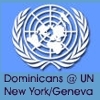

| BRIEFING - November 9, 2011 | To learn more about the Millenium Development Goals, click on the graphic Past Briefings: October 19, 2011 October 5, 2011 September 21, 2011 September 7, 2011 August 24, 2011 August 10, 2011 June 22, 2011 June 8, 2011 May 11, 2011 April 27, 2011 April 6, 2011 March 23, 2011 March 9, 2011 |
|
Extractive industries and sustainable development
A financial report of the UN Secretary General in 2009 stated that 80 percent of all Foreign Direct Investment invested in Africa is in resource-rich countries, and since then, these numbers have remained increasingly concentrated around these areas. While investment in a certain country (especially a lesser-developed one) is certainly to be commended, the manner in which this money is used should also be examined. Through examining business practices of the extractive industries, one can see the necessity for an emphasis on sustainable development in the future. Sustainable development encompasses social as well as environmental and economic issues. In order for sustainable development to be promoted in the practices of extractive industries, greater transparency and environmental safeguards must be put into place. Among a number of South American countries, Peru is facing the detrimental environmental effects of the extractive industries in relation to its silver mines. The Trade Environment Database of American University has reported, “Peru was a signatory to the Basel Convention, which aimed to prevent inter-country hazardous waste, of which silver mining solid waste is a main part. These wastes are defined as waste that can cause acute or chronic toxicity to humans, ignitability, infectious disease and potential extensive ecological damage.” However, Peru, its trading partners, and many other countries have ignored this convention with no real repercussions. As a result of this neglect, both people and the environment suffer. In a report published by the International Panel for Sustainable Resource Management, it was noted that while metal is inherently recyclable, the recycling rate for used cell phones and other items is so low that soon these metals will not be in use. The report also indicates that there has been little evaluation of the stock of certain minerals and the most commonly used metals. This situation is partly due to lack of data, partly to lack of interest in such studies in the past few decades. This showcases a blatant disregard for the limits of Earth’s resources. A means of sustainably reusing these metals needs to be explored. In addition to the environmental hazards which are inherent in the practices of the extractive industries, the treatment of the local indigenous people, as well as the employment practices of the industries leave much to be desired. For example, coltan is a rare metal used in many electronics, including cellphones and laptops, as an alternative to heavier meals. Coltan is usually mined in the Democratic Republic of the Congo, and many of the mines are militarized. While the Congolese government claims to control 80 percent of the mines, this is not the reality. The Congolese military and home-grown militias constantly battle each other for control of the mines, and use the local people as slave labor. The non-profit Stop Child Slavery, stated, “Slavery today, specifically child slavery, is being driven by the same motivation as it always has – profits.” Difficulty arises when one realizes that the Democratic Republic of Congo’s neighbors—Rwanda, Uganda, and Burundi—act as transit points for illicit exports, and profit from Congo’s instability. Regarding the treatment of indigenous peoples and their relationship to the land, the principle of free, prior and informed consent is critical. This was enshrined in the UN Declaration on the Rights of Indigenous Peoples, which was overwhelmingly adopted by the General Assembly in 1997. Under this principle, both governments and non-state entities must receive the free, prior and informed consent of the local people before taking any steps that affect lands, territories and resources. However, the implementation of this principle often leaves something to be desired. Land rights are always a problem for indigenous peoples. Proof of ownership can be very difficult to provide when a tribe has been living on a plot of land for centuries, before bills of sale or legal documents were considered necessary. On Oct. 17, the Special Rapporteur on the situation of human rights and fundamental freedoms of indigenous peoples, Professor James Anaya, stated that the issue of extractive industries will be a major component of his future work. He presented the idea of an online consultation forum related to extractive industries where Indigenous peoples would be encouraged to submit information. The Special Rapporteur would then gather and analyze the data about extractive industries during ongoing human rights investigations and country visits. Professor Anaya stated that he would be monitoring international compliance more closely in the future. It’s very important to emphasize that no corporation should be condemned merely for trying to make a profit. However, making a profit without considering the larger context of sustainable development will only harm everyone in the long run. Hopefully, more collaboration and communication between the private sectors, governments, and civil society will give the extractive industries a sustainable means of making a profit.
|
Dominican Leadership Conference
Building relationships and collaborating in the mission of preaching the Gospel
29000 West Eleven Mile Road
Farmington Hills MI 48336
248-536-3234 Contact: Executive Director
 This week’s Briefing comes to you from our Dominican volunteer, Alexandra (Alex) Sajben.
This week’s Briefing comes to you from our Dominican volunteer, Alexandra (Alex) Sajben.